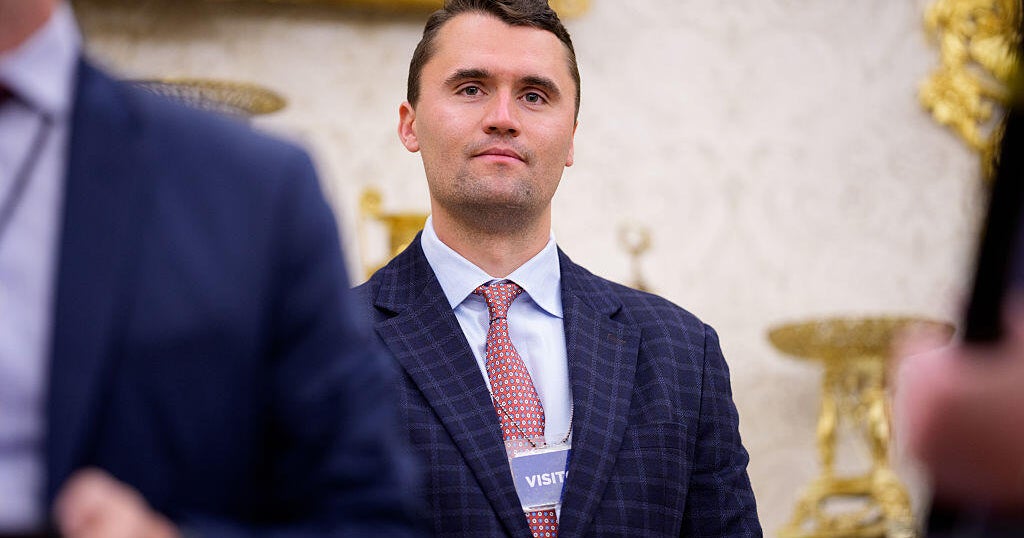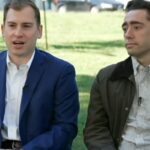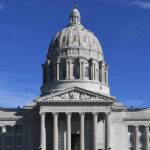In a recent incident that has sparked widespread discussions about professionalism and the expectations placed on government employees, the U.S. Secret Service has taken decisive action against one of its agents. The agent in question, Anthony Pough, came under scrutiny after making controversial remarks on social media regarding the late Charlie Kirk, a conservative influencer known for his polarizing views. Pough’s comments, which were critical of Kirk’s rhetoric and its impacts, have led to significant consequences, including being placed on administrative leave and having his security clearance revoked.
Charlie Kirk, a figure known for his influential conservative commentary, was a divisive personality whose views ignited strong reactions across the political spectrum. His untimely death led to a flurry of media attention and public discourse, focusing on his contributions to political dialogue and the contentious nature of his assertions. In this context, Anthony Pough’s statements on Facebook, where he accused Kirk of “spewing hate and racism” and remarked that ultimately “you answer to God, and speak things into existence. You can only circumvent karma, she doesn’t leave,” were seen not just as personal opinions but potentially damaging to the impartiality expected of someone in his position.
The response from the Secret Service was swift and unambiguous. In a memo to the staff that later became public through a report by CBS News, Secret Service Director Sean Curran emphasized the critical nature of the agency’s role, especially in a time when politically motivated attacks are alarmingly frequent. He expressed concern that such incidents not only undermine the Service but also contribute to a broader atmosphere of division and tension. Curran stressed, “The men and women of the Secret Service must be focused on being the solution, not adding to the problem.”
Curran’s communication to his agency went further to remind them of their oath and the high standards of conduct expected of them both on and off duty. He articulated the essential nature of public trust in their work, which he claimed could be compromised by any actions that draw negative attention. Curran pointedly concluded that the Secret Service must operate without bias towards political affiliations, and any distractions that deviate from this principle would not be tolerated.
These developments raise several questions about the balance of personal expression and professional responsibility among those in highly sensitive positions. Agents of the Secret Service, an organization tasked with some of the nation’s most critical protective responsibilities, are undoubtedly held to a higher standard given their proximity to national security issues. The evident repercussions faced by Pough underline the agency’s stringent adherence to a code of conduct that expects employees to avoid engaging in public political discourse.
Moreover, the incident throws light on the broader challenges faced by public institutions in navigating the charged political climate of contemporary America. With politicization appearing to invade almost every aspect of public and private life, maintaining neutrality and impartiality, especially in roles meant to be apolitical, becomes a formidable task. The Secret Service’s actions in this case can be interpreted as not just a reaction to a breach in conduct but also as a proactive measure to sustain operational integrity and public confidence.
This scenario also touches upon issues of freedom of speech and the extent to which free expression can be constrained by employment protocols, especially within government roles. While private citizens can voice personal views fairly freely, those in positions that require neutrality face more stringent restrictions, some warranted by potential risks these expressions could pose given their professional obligations.
Ultimately, the unfolding of this event underscores the delicate dance between personal liberties and professional duties that individuals in high stakes positions must navigate. In an age where social media platforms act both as a public square and a diary, the lines between personal opinion and public declaration become blurred, creating both new challenges and dimensions to the concept of freedom of speech and its limitations.
The resolution of this particular case will likely continue to stir debate and possibly set precedents for how similar situations are handled in the future by the Secret Service and other agencies operating under similar codes of conduct. As the U.S. grapples with political polarization, the responses of entities like the Secret Service to such incidents may serve as a litmus test for the resilience and adaptability of public trust in governmental institutions.
In this landscape, the role of the media and public scrutiny cannot be undersold. Transparency, accountability, and dialogue like that initiated by the Secret Service in response to the missteps of one of its own, play critical roles in mediating and moderating the complex relationships between public figures, their responsibilities, and the communities they serve. As these dynamics continue to unfold, they will no doubt remain a significant topic of public interest and discussion, reflective of the broader societal challenges facing governance, free speech, and ethical conduct in the modern era.









